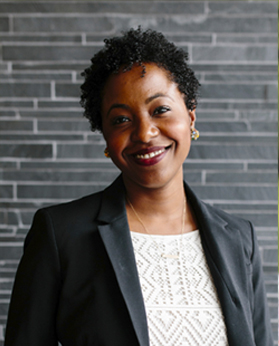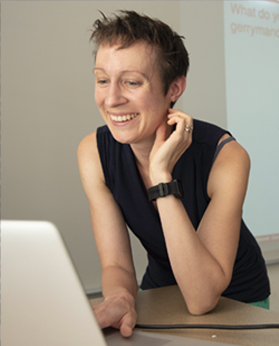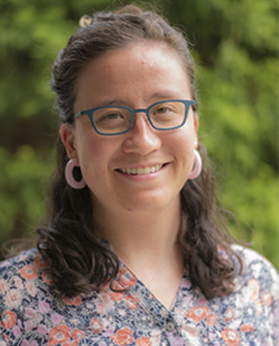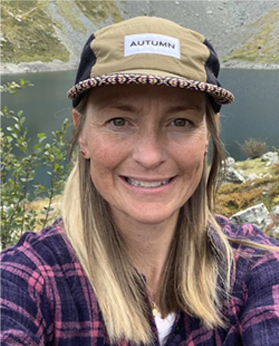
Greetings, fellow mathematicians!
Due to continued impacts from the covid-19 pandemic, the Intermountain Section's executive committee decided to hold our annual Spring section meeting in a hybrid format to provide both in-person and virtual presentations. The meeting will be hosted by Utah Valley University (UVU) in Orem, UT, on March 25 and 26. This two-day event will include contributed talks, presentations from our distinguished invited speakers, and student presentations and activities (such as the Calculus Bee). Presentations cover topics across the field of mathematics with the goal to stir discussion and interest.
The program this year includes guest speakers:
Liz Copene (Sr. Director, Software Development, bioMérieux [formerly BioFire Diagnostics])
Catherine Hsu (Swathmore College)
Emille Davie Lawrence (University of San Francisco)
Ellen Veomett (Saint Mary's College of California)
We are excited that these guests have accepted our invitation! They are excellent speakers and experts in their individual fields. We will also have a workshop by Ellen Veomett on the theme: "Mathematics of Gerrymandering."
We sincerely invite you to contribute a talk to the meeting, and we strongly encourage student research talk submissions. The deadline for abstracts is March 18, 2022.
We will also have a banquet on Friday night, a Section Business Meeting, Roots of Knowledge tours, and a hiking excursion on Saturday afternoon. For more information on contributing a talk or any other aspects of the meeting, please contact the local organizers. We also want to thank the host - UVU, especially the College of Science and the Department of Mathematics, for hosting and supporting the meeting.
We look forward to seeing you in March!
Sincerely,
Vinodh Kumar Chellamuthu
Chair, Intermountain Section
Associate Professor of Mathematics
Dixie State University

Title: "Exploring Mathematics Across Civilizations"
Abstract: Close your eyes and ask yourself, “Who are the greatest contributors to modern mathematics?”
Do you have your answer? There is a good chance that one of Newton, Gauss, Euler,
Galois, Cauchy, Cantor, or Noether appeared on your list. While these are indeed important
figures in today’s mathematical landscape, what is largely absent from our mathematics
education are the contributions of African, Indigenous, Oceanic, and people from other
non-European cultures. The aim of this talk will be to provide thought-provoking insight
into the mathematics of cultures that are often overlooked in American schools and
universities. We will also highlight how these ideas can be presented in our own teaching
as we work towards culturally responsive ways to engage students and towards presenting
mathematics as a diverse human experience.
Biography:
Emille Davie Lawrence is a Term Associate Professor and Chair of Mathematics and Statistics
at the University of San Francisco. She earned her B.S. in mathematics from Spelman
College and her Ph.D. in mathematics from the University of Georgia. She has also
been a postdoctoral fellow at the University of California, Santa Barbara and an Assistant
Professor at California State Polytechnic University, Pomona. Her research focuses
on topological properties of spatial graphs. She has been recognized for her work
in the mathematics community as the 2021 Association for Women in Mathematics Service
Award winner and was also elected to the Board of Directors of the Mathematical Association
of America as Officer-at-Large. She is also a recipient of the 2021 Karen EDGE Fellowship
for mid-career mathematicians. Emille enjoys speaking about mathematics to people
of all ages and has been a lecturer at the National Math Festival (2017 and 2021)
and has been featured on several math podcasts (My Favorite Theorem and Kids Math
Talk) as well as many other outlets. She believes strongly that mathematics should
be accessible to everyone, and her commitment to access is evidenced through her work
with various national and local organizations, such as the EDGE Program, the National
Girls Collaborative Project, the National Association for Mathematicians, and the
Association for Women in Mathematics. She is also co-editor of the book Living Proof:
Stories of Struggle and Resilience on the Path to Becoming a Mathematician. Her non-professional
life is filled with music and other performing arts and spending meaningful time with
her husband and two children.

Title: "Mathematical Metrics and Computational Techniques to Detect Partisan Gerrymandering"
Abstract: When you think about Gerrymandering, you likely think about bizarrely-shaped districts
like the "Goofy Kicking Donald Duck" district, the "Praying Mantis" district, or the
"Upside Down Elephant" district. Perhaps this suggests that looking at the geometry
of district shapes is the best way to determine whether or not gerrymandering has
occurred. But with modern technology, partisan cartographers can draw maps without
irregularly shaped districts that still exhibit irregular partisan bias. In this presentation,
we'll explore the evolution of metrics intended to detect gerrymandering. We'll start
with shape metrics, move to metrics that use partisan data (like the Mean-Median Difference
and Efficiency Gap), and then on to metrics and techniques that combine both district
data and partisan data (like the GEO metric and outlier analysis). We'll work together
to mathematically evaluate these metrics, as well as computationally evaluate real
maps. You'll leave with ideas, examples, and python code that you can bring to your
classroom. .
Biography:
Ellen Veomet is a Professor of Mathematics and Chair of the Math and Computer Science
department at Saint Mary's College of California. Her background is in Discrete Geometry,
and for the past 4 years her research has focused on using mathematical and computational
techniques to detect gerrymandering. Her results showing how variations in voter turnout
impacts the Efficiency Gap was published in the Election Law Journal and became one
of the top three most downloaded articles of 2018. Her recent research with collaborators
designing the GEO metric has garnered attention from North Carolina State Senators
and staff, as well as the National Democratic Redistricting Committee. When not studying
how to use mathematics and computational techniques to improve our democracy, Dr.
Veomett likes to spend her time running outside or playing with her two kids.

Title: "Projective and Non-Abelian SET "
Abstract: Mathematicians love SET. On the surface, this classic game is a contest of pattern
recognition, but it also presents an interesting way to visualize the geometry of
a torus over a finite field. In this talk, we will discuss some of the mathematics
connected to SET and then explore several new versions of the game, including one
arising from projective geometry and one arising from non-abelian groups. In particular,
we will see how these non-abelian variations on SET can give intuitive visualizations
of abstract group structures.
Biography:
Catherine Hsu is an Assistant Professor in the Department of Mathematics and Statistics
at Swarthmore College. Her mathematical interests began as a penchant for logic puzzles
and problem solving and grew into a love of abstract algebra and Galois theory while
she was an undergraduate student at Rice University. Her research is now primarily
in algebraic number theory, including projects related to modular forms and Apollonian
circle packings. She also enjoys thinking about mathematical exposition, pedagogy,
and unnecessarily complicated strategies for the card game Hanabi. Prior to joining
Swarthmore in the fall of 2020, Hsu was a Heilbronn Research Fellow at the University
of Bristol as well as an AAUW American Dissertation Fellow and a Doctoral Research
Fellow at the University of Oregon. As a junior researcher, she has greatly enjoyed
traveling and speaking at conferences around the world and is looking forward to meeting
new mathematicians as part of the MAA-AWM Lecturer program.

Title: "BioFire by bioMérieux; The Product, Problems, and People"
Abstract: Throughout my 14-year career at bioMérieux (formerly BioFire Diagnostics) I have been
regularly asked the question “Why are you still working there?” and “What is your
favorite part of the job?”. Depending on the day, I may answer the question slightly
differently, but the answer is always basically the same; It’s all about the product,
the problems, and the people. I began work on the product (a suite of multi-target
PCR tests for rapid and accurate diagnosis of respiratory, blood, gastrointestinal
and other infectious disease syndromes) in its early stages of development, and helped
to grow the R&D teams to meet the market demand, especially during the current pandemic.
Throughout this journey, there has been a never-ending supply of problems that we
must solve as a team. In this talk, I will expand on these topics and provide you
with examples where mathematics has played a role in enabling success.
Biography:
Elizabeth (Liz) was born and raised in Salt Lake City, Utah, where she spent much
of her teenage years focused on snowboarding. She then attended Westminster College
in Salt Lake City, where she began to realize the joy of academics. After taking an
entry level calculus course and a physics course in electricity and magnetism, she
was inspired to advance her education in mathematics, receiving a B.S. degree in Mathematics
with a minor in Physics. She went on to attend the Mathematical Biology Program at
the University of Utah in the Department of Mathematics. Her academic career was focused
on mathematical modeling the electrophysiology of cardiac cells. After obtaining a
Ph.D. in Mathematics in 2008, she began her career working as a Data Scientist, learning
industry standard best practices for software development, and working with cross-functional
teams of engineers and scientists, to develop a molecular diagnostic platform for
use in a clinical setting. Liz is currently in a senior directorship position for
the development of software and analytics solutions for the BioFire products at bioMérieux.